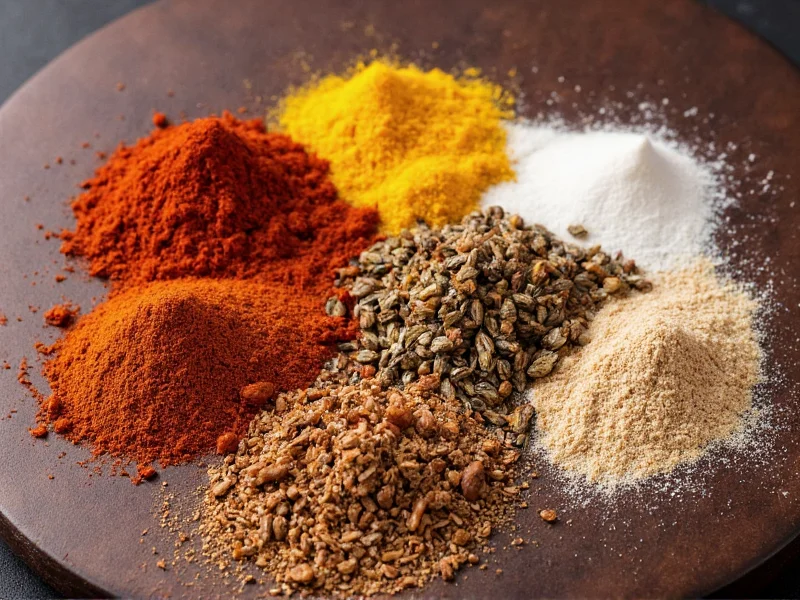Adding spices to your backyard chickens' diet can provide surprising health benefits while enhancing their natural foraging experience. As poultry keepers increasingly seek natural ways to support flock wellness, understanding which spices are safe—and which offer specific advantages—becomes essential knowledge for responsible chicken care.
Benefits of Spices in Poultry Diets
Research in poultry nutrition shows that certain spices contain bioactive compounds that support chicken health. Unlike synthetic additives, these natural options provide multiple benefits without harmful side effects when used appropriately. The key is understanding which spices deliver genuine advantages and how to incorporate them safely into your chickens' regular feed regimen.
Safe Spices for Chicken Consumption
Not all spices are created equal when it comes to poultry nutrition. The following spices have demonstrated safety and benefits in controlled amounts:
| Spice | Health Benefits | Recommended Amount |
|---|---|---|
| Turmeric | Anti-inflammatory, improves egg yolk color, supports liver function | 1-2% of total feed |
| Garlic | Natural antibiotic, boosts immune system, repels parasites | 1 clove per 5 chickens daily |
| Oregano | Antimicrobial properties, improves gut health | 0.5-1% of total feed |
| Cinnamon | Supports respiratory health, regulates blood sugar | Small pinch per feeding |
| Ginger | Aids digestion, reduces inflammation | 1/4 teaspoon grated per 5 chickens |
Spices to Avoid or Use with Caution
While many spices benefit chickens, some require careful consideration:
- Nutmeg - Contains myristicin which can be toxic in larger quantities
- Cloves - Too potent for regular consumption; occasional small amounts only
- Excessive salt - Not a spice but often combined; harmful in large amounts
- Very hot peppers - While cayenne in small amounts helps circulation, extremely hot varieties may cause discomfort
How to Introduce Spices to Your Flock
Implementing spices into your chickens' diet requires thoughtful introduction:
- Start small - Begin with minimal amounts to assess tolerance
- Mix properly - Combine spices thoroughly with regular feed to prevent selective eating
- Monitor behavior - Watch for any changes in appetite, droppings, or activity levels
- Consistency matters - Regular small doses work better than occasional large amounts
- Combine with treats - Mix spices with scrambled eggs or yogurt for easier acceptance
Scientific Support for Poultry Spice Benefits
Studies published in poultry science journals confirm several spice benefits. Research shows oregano's carvacrol content demonstrates significant antimicrobial effects against common poultry pathogens. Turmeric's curcumin improves antioxidant status in laying hens, potentially enhancing egg quality. Garlic supplementation has been linked to improved feed conversion rates and parasite resistance in multiple studies.
When considering natural supplements for backyard chickens, spices represent a valuable option that aligns with holistic poultry management approaches. The best spices for chicken health provide multiple benefits without the risks associated with synthetic additives.
Practical Implementation Tips
For those exploring how to add spices to chicken feed, consider these practical approaches:
- Create a spice blend specifically for your flock using safe ingredients
- Add spices to scratch grains for foraging enrichment
- Mix with wet feed like soaked pellets for better adherence
- Offer fresh herb varieties alongside dried spices for variety
- Adjust amounts seasonally—more garlic in summer for parasite prevention
Remember that spices should complement, not replace, a balanced commercial feed. The safe amount of spices for chickens typically ranges from 0.5% to 2% of total daily feed intake, depending on the specific spice.
When to Consult a Poultry Specialist
While spices generally pose minimal risk, consult an avian veterinarian if you notice:
- Significant changes in egg production or quality
- Unusual droppings or digestive issues
- Decreased appetite or activity levels
- Any signs of respiratory distress
Professional guidance proves especially valuable when managing special dietary needs for chickens or addressing specific health concerns through natural supplementation.











 浙公网安备
33010002000092号
浙公网安备
33010002000092号 浙B2-20120091-4
浙B2-20120091-4